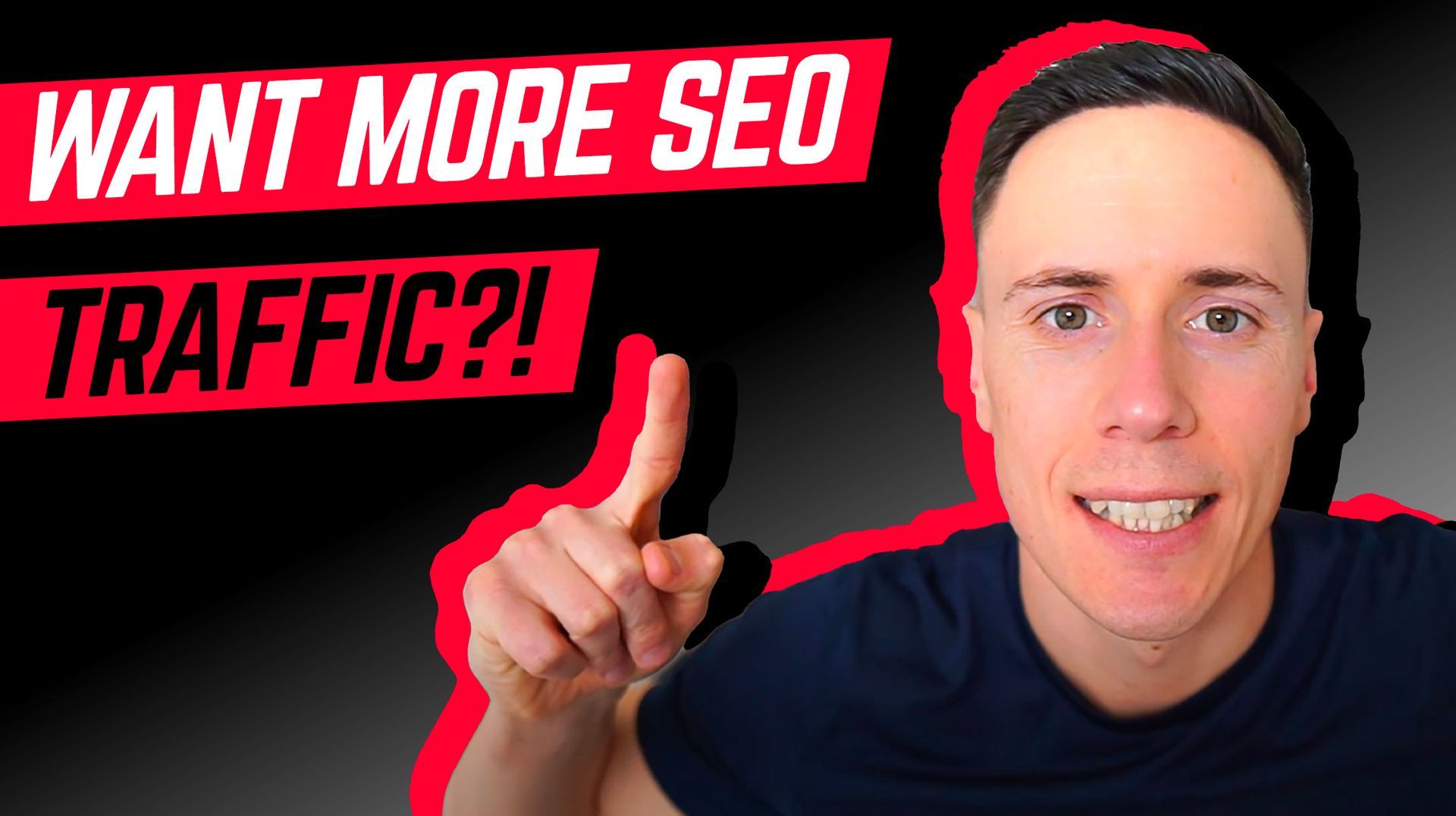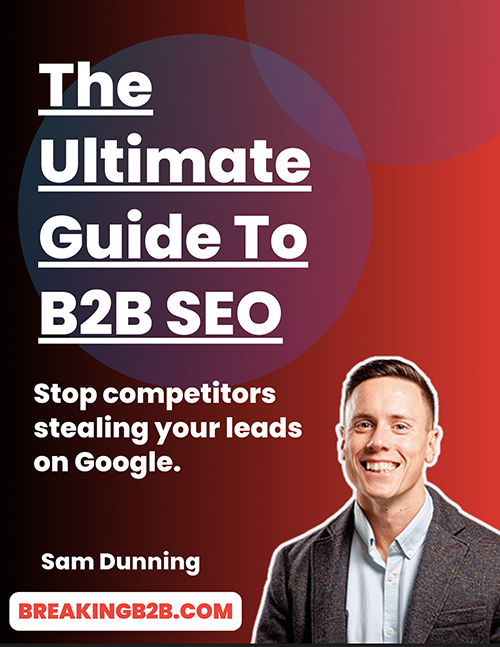How to Rank in ChatGPT Search:
Full Walkthrough for SearchGPT
Author: Sam Dunning
✪ Date: July 1st 2024
We’ve written this article to help you get to that all-important #1 ranking spot with a little help from the very latest AI tool on the block: SearchGPT. OpenAI’s claim is that SearchGPT gives more detailed, ‘more human’ responses to search queries… Let’s test that claim and find out who the new tool is aimed at, how it compares to the search engine titan that is Google search, and ultimately, how to use SearchGPT to achieve incredible B2B SEO results!
SearchGPT: The headlines
You’ve no doubt heard of OpenAI, the company behind arguably the world’s most well-known LLM (large language model). The AI tool has enjoyed a meteoric rise in use over the last couple of years, with well over 150 million users worldwide (as of October 2024). It therefore seemed inevitable that OpenAI would indeed eventually release its own product to rival that of Google’s search engine, and now they have done just that!
- Release Date: 31st October 2024 (still technically in the prototype stage).
- Revenue model: Subscription to the ‘full’ version of ChatGPT.
- Paid Ads: Unlike Google, to date there are no paid ads, only organic search results.
- Links: Gone are the familiar blue links that you’ll find on usual search engines.
- Technology: Powered by Microsoft’s Bing search engine, plus AI data and functionality from ChatGPT’s LLM
- Interface: SearchGPT has a clean, minimal interface. Responses are virtually instantaneous and are generated with the same visual progression of ChatGPT’s responses (i.e., it appears to type the response in real time).
Why should you use it now?
- Boost site traffic, brand, and mindshare with the new tool
- Early adopters have much to gain as they embrace it and understand how it works
- Increase wins
over times the tool evolves
Google organic Vs SearchGPT
The very first point of difference between SearchGPT and Google search is the interface. We are all incredibly familiar with the layout of Google with its blue underlined headings that link straight to the source of info/relevant websites. With By contrast, the first time you fire up SearchGPT, you'll be taken aback by just how minimalist the page layout is.
Essentially, you are presented with two or three paragraph summaries of text in response to your search query that are interspersed with very small ‘OpenAI’ citation CTAs that bring up a pop-up dialogue box as you move your cursor over them. These sources, when clicked, open a new tab section on the right-hand side of the page with relevant search results and references.
The overall feel you get is that SearchGPT wants to present you with what it feels like is the most relevant information in a very concise, easy-to-consume format. It is as if the search results have been condensed for you and relayed through a filter. The engine essentially prompts a dialogue between yourself and ChatGPT, allowing it to do much of the sifting through of the information on your behalf.
Sam’s SearchGPT video guide
Sam has put together a helpful video guide on SearchGPT where he demos a number of B2B searches conducted by a B2B SEO Agency, comparing and contrasting with Google’s responses using the ’job to be done’ framework input query: ‘how to build a killer sales demo for a CMO,’ along with a fairly typical, bottom-of-funnel B2B search for proposal software. Sam’s video goes in depth about:
- Clear overview of SearchGPT
- Contrasting it to Google search
- Assessing SearchGPT’s overall impact
- Testing use cases specific to B2B
- Ideas for implementing the tool to rank
Sam has loads more actionable tips for you and goes into even more depth in his:
Ultimate B2B SEO Guide
SearchGPT for B2B searches:
So, the all-important question for those in B2B is: how useful is SearchGPT for B2B? If you want rapid results for very specific queries, then SearchGPT gives quick, detailed results with a concise AI overview.
You’ll find that you don’t need to click through many links, which is in stark contrast to Google search, where you’ll frequently find yourself clicking away from the results page multiple times, and you’ll often have multiple explorer tabs open.
The fact that you’ll spend much of your time within the SearchGPT interface also makes it well suited for B2B searches on smartphone devices, where multiple links within a text wall can be particularly difficult to navigate on a small screen.
With SearchGPT, another significant advantage is the fact that it can reference data that it has already returned, and that means follow-up search queries can go into even greater depth without repeating themselves. Again, a huge advantage over Google search, where you often have to input multiple search terms, changing a word or two here or there to see if it generates a different response.
SearchGPT as a local search tool:
- Blue links direct straight to Google Maps.
- Data pulled from ‘Google My Business’ is up-to-date and highly relevant.
- Follow-up searches build upon previous queries + less typing.
- Interface keeps results mainly to one page, with less need to follow external links.
- Ideally suited to mobile/tablet searches.
Sam's B2B Articles
Will SearchGPT Kill Google Search?
The short answer is
NO, Google search is not dead and it should still be safe for the foreseeable future from it’s new competitor. A quick look at the numbers inform just how much market dominance Google has, with more than 8 billion searches per day globally! By contrast, SearchGPT generates around 10 million results per day.
Habits are difficult to break and so many of us are used to going straight to Google whenever we need an answer. For B2B we can see SearchGPT gaining traction and achieving greater market saturation as more B2B users become aware of its key differentiators.
SearchGPT can definitely help with brand recognition and dark social (private messaging apps, email, SMS, etc) as it analysis and identifies high-performing topics relevant to B2B and generates highly specific content that is easy and quick to share.
SearchGPT: Security & Privacy
Google collects vast quantities of user data from search queries and then uses the information it harvests to generate highly targeted personalised ads. Google search also has advanced tracking capabilities that monitor (and subsequently monetise) user behaviour.
SearchGPT’s algorithm does not change based on user-supplied data. SearchGPT implements an aggregated feedback loop to refine and evolve user queries. What this means in practice is that if a user frequently interacts with specific responses, this has the potential to influence how future queries are presented and managed. Again though, individual user data is not harvested for personal profiling.
It is still early days for SearchGPT, but right now it’s fairly safe to say that openAI offers enhanced privacy. While Google claims to be very open about what data it harvests and how it uses it, it is defiantly extracting greater amounts of personal data to use for its ad revenue and monetisation.
Where is SearchGPT pulling it’s results from?
SearchGPT generates its results based on info that it has been pre-trained with as well as real-time searches before refining the data for presentation. The initial information it was fed with comes from the internet, as well as articles, books, and papers. It also retrieves real-time data using trusted APIs. The four-step process looks like this:
- Step 1 > SearchGPT is fed training data, which it trawls and learns from by analysing patterns and relationships. The patterns it finds are what it uses to answer queries, not specific references.
- Step 2 > Real-time data via the internet or custom integration is referenced to ensure relevance and up-to-date results.
- Step 3 > Results are then refined through additional training with supervised learning using a string of labelled datasets. This enables it to have the functionality to generate results that are specific to certain topics/industries / niches.
- Step 4 > SearchGPT ‘learns’ through continuous improvement as it updates the model. The information it harvests from users is anonymised and aggregated.
How to rank using SearchGPT
We’ve compiled a bulleted list below of juicy tips from a SaaS SEO agency that will help you rank using SearchGPT! It should be stated that these are yet to be tested over the long term because SearchPT is simply too new, but they are robust and have all demonstrated proven results for B2B with Google Search:
- Clearly structured pages, easy to read.
- Engaging content that leverages high-quality media (infographics, videos, social proof, etc.)
- New & relevant content (EEAT Google framework).
- In-depth heavily researched, high-quality content that targets your niche.
- Conversational content style and tone (i.e., not AI-generated!).
- Target defined, highly specific long-tail keywords used by ideal customer profiles.
- Answer common questions onsite (sales/CS calls).
- Technical SEO implementation (mobile/page speed/heading tags/breaking up content/internal links).
- Reference brands, plus implant high-quality, highly relevant niche links (quality over quantity).
- Empower trust
with signalling across the web.
Who does SearchGPT impact the most?
B2Bs that are ‘tech-savvy’ (i.e., have a more technical approach). Google will still be the go-to tool for the vast majority of everyday users, but SearchGPT will steadily draw B2B users looking for the specific functionality offered to them.
Google Search for:
- Will retain market dominance
- Ideal for ‘How to’ enquiries
- Software / vendors comparisons
- Problem solving
SearchGPT Search for:
- Tech-savvy users in IT/SaaS
- Early adopters looking for an alternative to Google
- Leveraging a new resource ahead of competitors
For friendly, honest help regarding all aspects of Web devlopment & B2B marketing, get in touch with Sam:
SearchGPT FAQs
Ready To Grow Your B2B Company?


